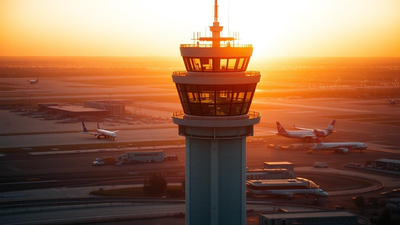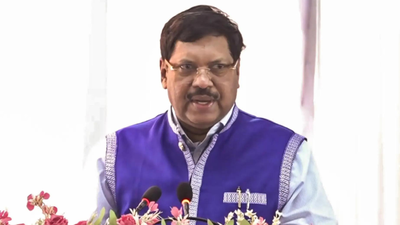Working 60 hours a week: US air traffic controllers forced to drive uber, deliver food amid govt shutdown – Report

As the US government shutdown enters its third week, air traffic controllers are being forced to find second jobs to make ends meet. Many are now driving for Uber, delivering food or working in restaurants after their regular shifts.Deemed essential workers, thousands of air traffic controllers must continue working despite not being paid since the shutdown began on October 1. The funding lapse has left them without regular income and many are struggling to cover basic expenses, according to a report by Forbes. Nick Daniels, president of the National Air Traffic Controllers Association (NATCA), said the situation has become dire. “We’re told we’ll get paid eventually, but that doesn’t pay the mortgage, gas, or food bills,” he said. “No one takes IOUs.”Controllers, already under immense pressure due to chronic staff shortages, are now working up to 60 hours a week while taking on additional jobs to survive. “They’re finishing their shifts, then driving for Uber or serving tables in the evening,” Daniels said.Before the shutdown, the aviation sector was already grappling with a decade-long shortage of air traffic controllers. The Federal Aviation Administration (FAA) reported that 91% of control centers were operating below recommended staffing levels even before the crisis.Transportation secretary Sean Duffy said staffing in some areas has now been cut by up to 50%, partly because some controllers are calling in sick. NATCA, which represents over 20,000 aviation safety professionals, is working with banks to arrange no-interest loans for affected workers.Many senior controllers have also stepped in to support new recruits who recently relocated for their first postings without guaranteed pay, providing meals and other assistance.Airline crews, including Alaska Airlines pilots, have been delivering food to control towers, while Canadian and Australian controllers have sent support packages.Experts warn that prolonged financial stress and exhaustion could impact flight operations. While flight safety remains uncompromised, the ongoing crisis could lead to more delays and cancellations as morale drops.According to FlightAware, over 7,800 flight delays and 117 cancellations were recorded on Sunday alone. Earlier this month, more than half of 23,000 delays in a single week were linked to staffing shortages, a figure that typically stands at only 5%.Daniels urged political leaders to end the shutdown, saying the burden on workers is unsustainable. “That’s why the American people—we’re asking them to continue to stand up and say, ‘End this shutdown now.’ There is no scenario where we just have a game plan for no one having any money and continuing to work,” Daniels said.





